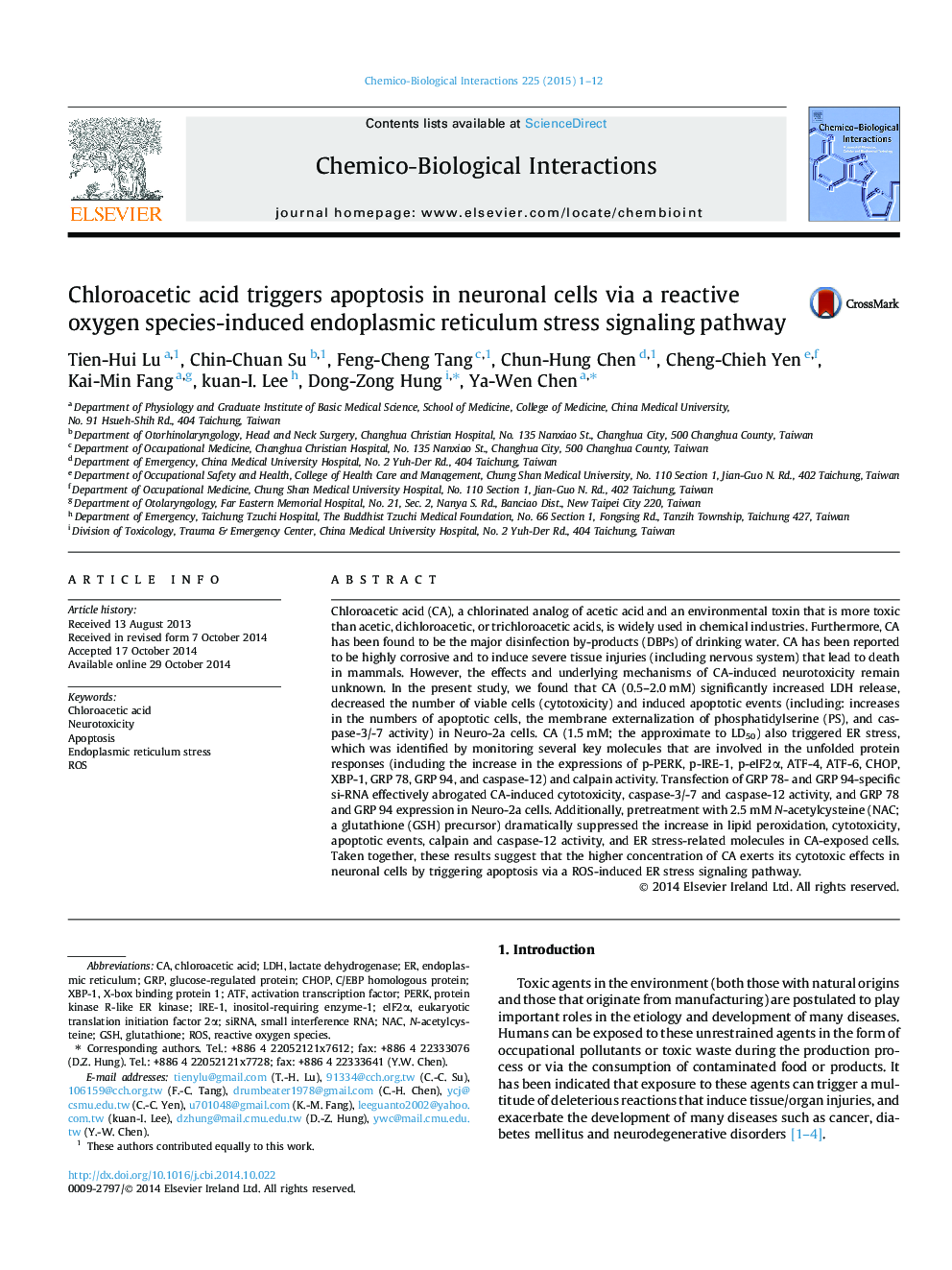| Article ID | Journal | Published Year | Pages | File Type |
|---|---|---|---|---|
| 5847895 | Chemico-Biological Interactions | 2015 | 12 Pages |
â¢Chloroacetic acid (CA) induced ROS leading to neuronal cell death.â¢CA triggered an ER stress-mediated apoptotic pathway.â¢CA caused neuronal cell apoptosis via a ROS-induced ER stress-mediated pathway.
Chloroacetic acid (CA), a chlorinated analog of acetic acid and an environmental toxin that is more toxic than acetic, dichloroacetic, or trichloroacetic acids, is widely used in chemical industries. Furthermore, CA has been found to be the major disinfection by-products (DBPs) of drinking water. CA has been reported to be highly corrosive and to induce severe tissue injuries (including nervous system) that lead to death in mammals. However, the effects and underlying mechanisms of CA-induced neurotoxicity remain unknown. In the present study, we found that CA (0.5-2.0 mM) significantly increased LDH release, decreased the number of viable cells (cytotoxicity) and induced apoptotic events (including: increases in the numbers of apoptotic cells, the membrane externalization of phosphatidylserine (PS), and caspase-3/-7 activity) in Neuro-2a cells. CA (1.5 mM; the approximate to LD50) also triggered ER stress, which was identified by monitoring several key molecules that are involved in the unfolded protein responses (including the increase in the expressions of p-PERK, p-IRE-1, p-eIF2α, ATF-4, ATF-6, CHOP, XBP-1, GRP 78, GRP 94, and caspase-12) and calpain activity. Transfection of GRP 78- and GRP 94-specific si-RNA effectively abrogated CA-induced cytotoxicity, caspase-3/-7 and caspase-12 activity, and GRP 78 and GRP 94 expression in Neuro-2a cells. Additionally, pretreatment with 2.5 mM N-acetylcysteine (NAC; a glutathione (GSH) precursor) dramatically suppressed the increase in lipid peroxidation, cytotoxicity, apoptotic events, calpain and caspase-12 activity, and ER stress-related molecules in CA-exposed cells. Taken together, these results suggest that the higher concentration of CA exerts its cytotoxic effects in neuronal cells by triggering apoptosis via a ROS-induced ER stress signaling pathway.
Graphical abstractDownload full-size image
